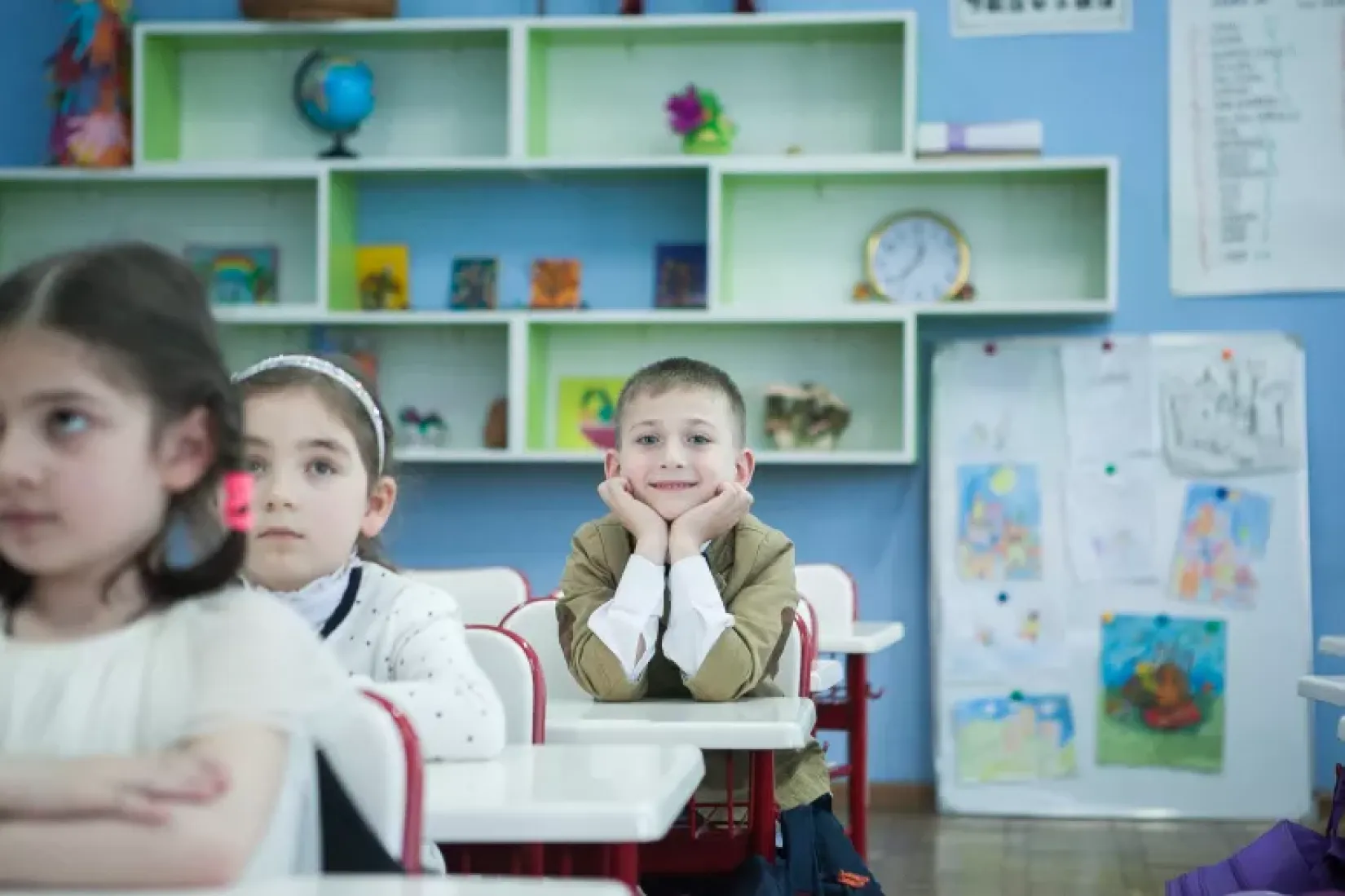On International Day of Education, UNICEF calls for increased focus on equal access to quality education in Georgia
24 January 2024
UNICEF calls on its partners in the Government to prioritize equal access to quality education and to ensure that every child, including those from ethnic minorities and from remote areas has access to quality and safe formal and non-formal education, as well as extracurricular and social cohesion activities, innovative educational resources and uninterrupted support from educators and school community.

UNICEF calls on its partners in the Government to prioritize equal access to quality education and to ensure that every child, including those from ethnic minorities and from remote areas has access to quality and safe formal and non-formal education, as well as extracurricular and social cohesion activities, innovative educational resources and uninterrupted support from educators and school community.
The results of the 2022 PISA assessment of 81 countries show an overall decline in the performance of students. Very few countries managed to maintain or raise levels of students’ performance. The results of students in Georgia remained at a similar level to the 2018 PISA results, and well below the OECD average. Georgian students are placed 59th in math, 66th in reading and 65th in sciences.
Results of 2022 PISA underscore inequalities in the education system – students living in cities outperform those living in villages; socio-economically advantaged students have better academic outcomes than their disadvantaged peers; students with Georgian language instruction outperform their peers learning in Azerbaijani language; and children studying in private schools have better results than public school students.
COVID-19 contributed to inequalities in accessing quality education in recent years. More than half of students in Georgia reported that their school building was closed for more than three months due to COVID-19. During distance learning, 32% of students had problems at least once a week with understanding school assignments and 30% of students struggled with finding someone who could help them with schoolwork. As a result, 44% of students reported they fell behind during distance learning.
PISA uses the life-long learning principle and measures the knowledge and skills obtained by 15 years old students in three mentioned subjects necessary to participate in everyday life, including the reproduction and usage of knowledge as well as skills in problem-solving, understanding and analyses of information, logical and scientifical interpretations, evidence-based conclusions and effective communication in different real-life situations, in and outside the schools. To bridge the gaps demonstrated by the PISA results, it is important to ensure that every child has opportunities to develop transferable skills allowing them to become adaptive learners and citizens equipped to navigate personal, social, academic, economic and environmental challenges. Skills such as problem-solving, negotiation, empathy, communication, participation, play, peacebuilding, environmental awareness, emotional and mental wellbeing should be put at the center of the formal and non-formal teaching and learning practices.
UNICEF calls on the Government to put more focus on low performing schools and most disadvantaged children to eliminate inequalities in education and to make sure that teachers and school leaders are provided with continuous high quality and impactful pre- and in-service professional development and education programmes, including in the languages of ethnic minorities, leading to child-centered and innovative teaching and learning environment.
UNICEF remains committed to working alongside the Government, educators, and communities to create an inclusive and empowering educational environment for every child in the country.

